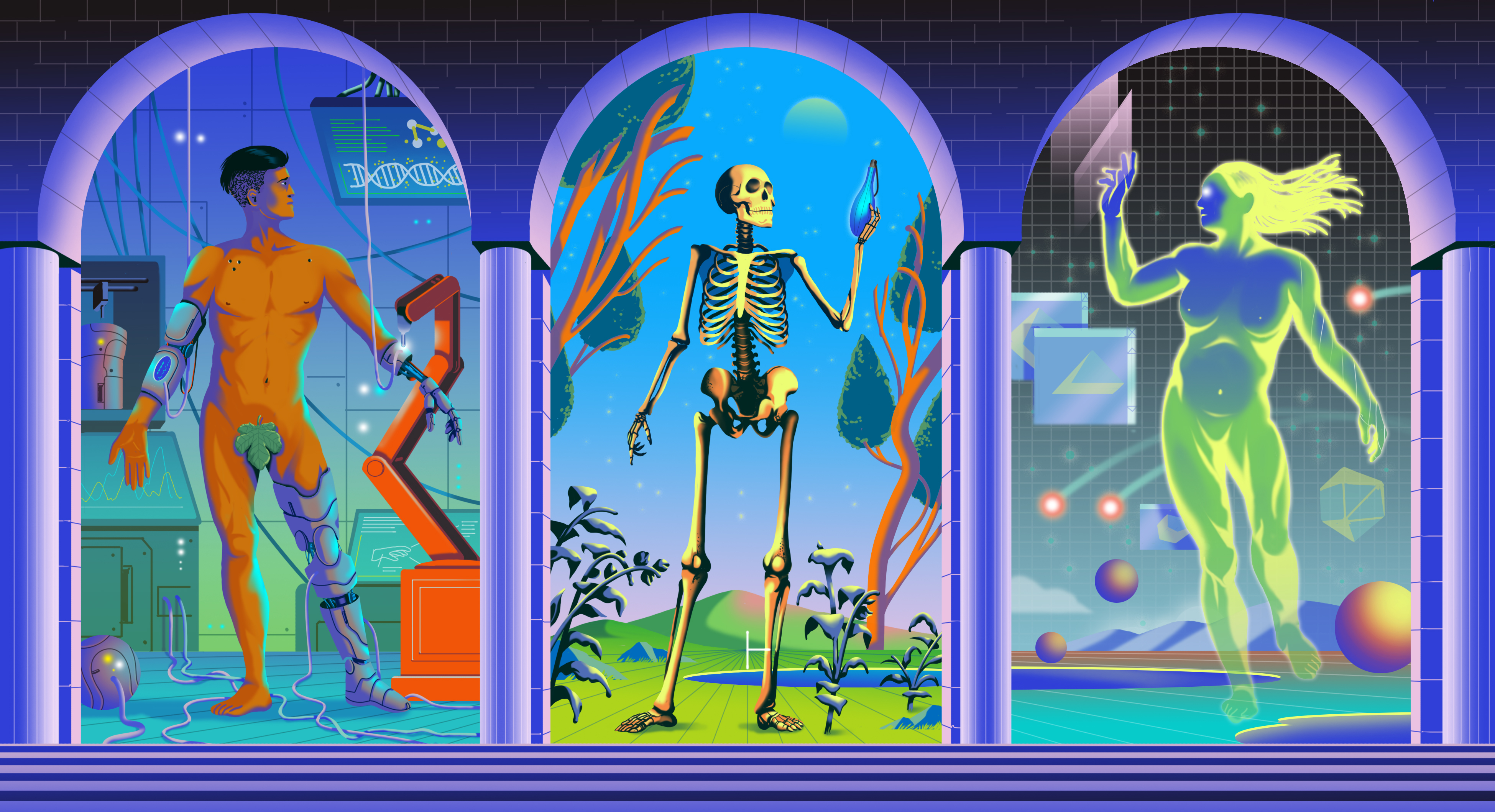Is life after 75 worth living? This UPenn scholar doubts it.

Photo by Katarzyna Grabowska on Unsplash
- Dr. Ezekiel Emanuel revisits his essay on wanting to die at 75 years old.
- The doctor believes that an old life filled with disability and lessened activity isn’t worth living.
- Activists believe his argument stinks of ageism, while advances in biohacking could render his point moot.
A few years ago oncologist and bioethicist Dr. Ezekiel Emanuel wrote a provocative essay in The Atlantic titled “Why I Hope to Die at 75.” This picked up a lot of traction as Emanuel was the chair of the University of Pennsylvania’s department of medical ethics and health policy, and one of the leading figures in creating Obamacare. Ezekiel is also brother to the former mayor of Chicago, Rahm and Hollywood agent Ari.
Emanuel has declared he will refuse medical interventions, antibiotics, and vaccinations once he turns 75. The crux of his argument is that older Americans are living too long in a disabled and “diminished” state of life. He wants to make his friends and others think about how they want to live as they grow older, as he put it, “I want them to think of an alternative to succumbing to that slow constriction of activities and aspirations imperceptibly imposed by aging.”
There are some experts today that are still opposed to this kind of thinking. Ageism activist and writer, Ashton Applewhite, finds a great deal of unsubstantiated claims in Emanuel’s argument. Likewise, Emanuel’s ideas may also soon become obsolete — biohackers such as Dave Asprey believe we’re on course to living up to 180 years old.
Emanuel recently caught up with MIT’s Technology Review in an interview where he talked about the social implications of longevity research and why he doesn’t support extending life spans.
While nobody wants to die, Emanuel believes that the alternative, degeneration, is worse: “living too long is also a loss,” he states in his original essay. For a great deal of Americans these kinds of disabilities and loss of health severely limits what they can do and accomplish.
There are few different sets of arguments strewn throughout this essay. One of those being that there are not that many people who’ll continue to be “active and engaged” in their lives. While Emanuel points out that there are outliers who stay physically fit and healthy into their nineties, they’re just that — outliers, for which he believes the majority of people are not. That is one measure Emanuel determines on whether a life is worth living or not.
Right around the time this essay was originally written, Ashton Applewhite countered this type of thinking by calling out the problematic nature of the argument:
“It is regrettably American to value doing over being, an ethos that Ezekiel Emanuel epitomizes and that serves us poorly in late life. No wonder he views the prospect with such dread and contempt.”
This opens up the question as to whether being mentally stimulated is also enough to warrant wanting to live longer. It’s not hard to imagine a person calm and aged serenely content to be, rather than living in some kind of action-packed lifestyle.
Emanuel continues on by regarding aging as something that, “. . . transforms how people experience us, relate to us, and, most important, remember us. We are no longer remembered as vibrant and engaged but as feeble, ineffectual, even pathetic.”
He also counters the cultural idea of what he calls “the American immortal.” That is, the amount of time and energy people spend obsessing about exercise, diets, and longevity plans to live as long as possible. Emanuel says,
“I reject this aspiration. I think this manic desperation to endlessly extend life is misguided and potentially destructive. For many reasons, 75 is a pretty good age to aim to stop.”
The doctor doesn’t intend on ending his life actively at 75, but he won’t be trying to prolong it either.
When asked what’s wrong with simply enjoying an extended life, Emanuel replied in a somewhat flippant manner:
“These people who live a vigorous life to 70, 80, 90 years of age — when I look at what those people ‘do,’ almost all of it is what I classify as play. It’s not meaningful work. They’re riding motorcycles; they’re hiking. Which can all have value — don’t get me wrong. But if it’s the main thing in your life? Ummm, that’s not probably a meaningful life.”
He also suggested that our obsession with longevity is driving away attention from the health and well-being of children. “One of the statistics I like to point out is if you look at the federal budget, $7 goes to people over 65 for every dollar for people under 18,” he says.
Applewhite takes issue with this statement here (video located below).
Longer lifespans: A coming crisis or reason to celebrate?
The author and activist opposed Emanuel’s original article when it came out and believes that the idea remains problematic. Regarding his point that more federal dollars go to older people than to children she stated in an email that:
“… [The idea] is classic, misguided zero-sum thinking of the sort that needlessly pits the generations against each other. There is plenty to go around if resources are more equitably. The old do not profit at the expense of the young.”
Most importantly, it is not legal — or ethical—to allocate resources by race or by sex. Doing so by age is equally unacceptable. Period.
She also takes issue with the idea that our older years are not of high quality to some categorical degree due to disability brought on by age — be it mental or physical. Applewhite points to the large amount of people living fine and fulfilled lives who have disabilities.
Yet, she does concede that quality of life is subjective. As does Emmanuel, while he disagrees with the sentiment he still supports the choice of people wanting to live as long as possible.
Biohacking: Why I’ll live to be 180 years old | Dave Asprey | Big Thinkwww.youtube.com
There are a whole host of radical ideas that seek to improve the human condition. Whether it’s Aubrey De Grey’s ideas to live to over 1,000 years old or the work that biohacker Dave Asprey has funded and started.
While the science still isn’t settled, we can’t discount the idea that we’ll one day live even healthier and more robust lives in our twilight years.
Dr. Emmanuel’s ideas may become irrelevant if we succeed in this quixotic and eternal dream.





